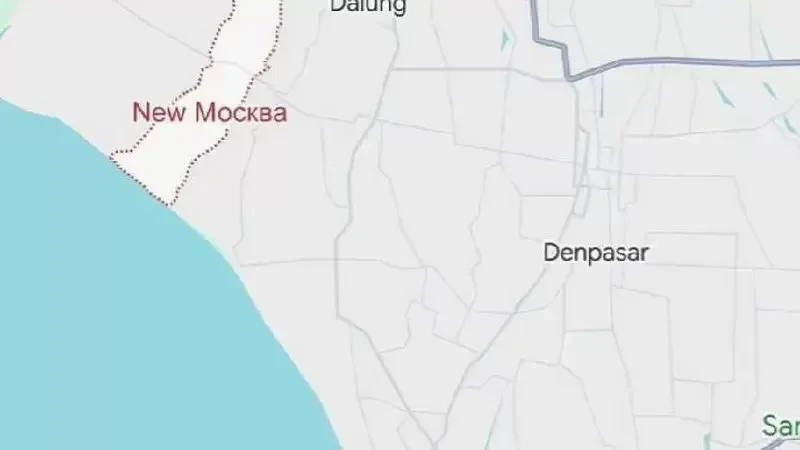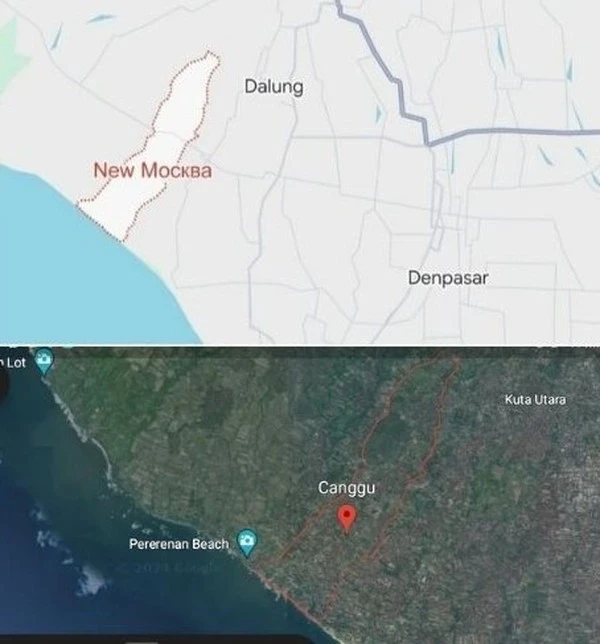Prank or provocation? The central district of Canggu was displayed as "New Moscow" on Google Maps. However, it didn't last long. Users of the map noticed the change, which sparked a strong reaction.

It is unknown who and why someone renamed the area in the app, but it caused discontent among many local residents. Commentators on social media saw it as a symbol of foreign dominance on the island.
The head of Bali's provincial tourism department, Tjok Bagus Pemayun, even had to respond to the new toponym. He stated that he saw no problem with the term "New Moscow," calling it a common practice to name places with large numbers of expats after significant toponyms for them. According to the official, "New Moscow" has as much right to exist as Chinatown in Singapore or the Paris Van Java area in Bandung on the island of Java in Indonesia.
"If the term 'New Moscow' exists in Bali, it doesn't matter as long as the residents of this place continue to follow all the rules and regulations in Indonesia and do not cause problems for local communities," Pemayun explained.


Expats from Russia were rather amused by the news of "New Moscow." The new name is unlikely to stick. Currently, Google Maps does not show any results for this name in Bali.
Russians in this area of Bali have long been a minority. Those Russians who own businesses in Canggu prefer to position them as international, which helps attract clients from various countries who visit the paradise island.
Incidentally, Russian tourists do not even rank in the top summary statistics that Bali authorities publish monthly. For example, in March, out of 455,277 guests who arrived on the island, almost 114,000 were Australians, 41,690 were Indians, 29,671 were Chinese, 27,114 were British, and 23,417 were US citizens.
Some time ago, there were already reports on social media about a Russian-speaking settlement in the Canggu area. However, journalists were unable to obtain details about an ethnic village supposedly inhabited by Russian citizens.
You can add one right now!